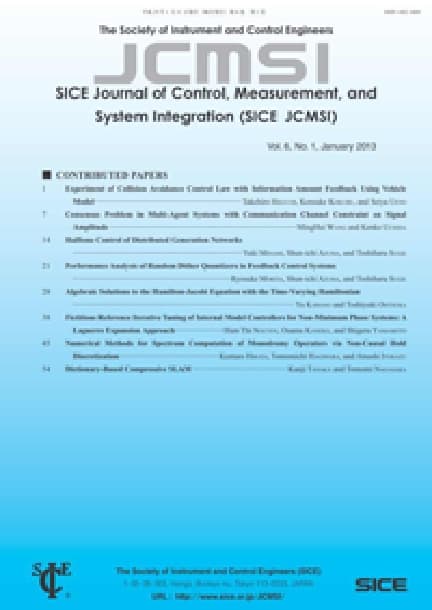Sliding Mode Controller Design Based on Backstepping Technique for Fractional Order System
Takahiro TAKAMATSU, Hiromitsu OHMORI
pp. 151-157
DOI:
10.9746/jcmsi.9.151Abstract
As a representative approach to control nonlinear system, sliding mode control (SMC) is widely used. SMC is one of the useful control methods also for the fractional order systems. However, SMC cannot handle the disturbance presence on a mismached input channel. In case mismatched disturbance exists, a control system needs to be constructed by backstepping technique. In this paper, to solve the mismatched disturbance problem of SMC for fractional order systems, we propose a novel backstepping technique using fractional order differentiation. And, we confirm the availability of our proposed backstepping technique by numerical simulation.
Readers Who Read This Article Also Read
SICE Journal of Control, Measurement, and System Integration Vol.2(2009), No.2
Zairyo-to-Kankyo Vol.54(2005), No.8
Zairyo-to-Kankyo Vol.65(2016), No.1









